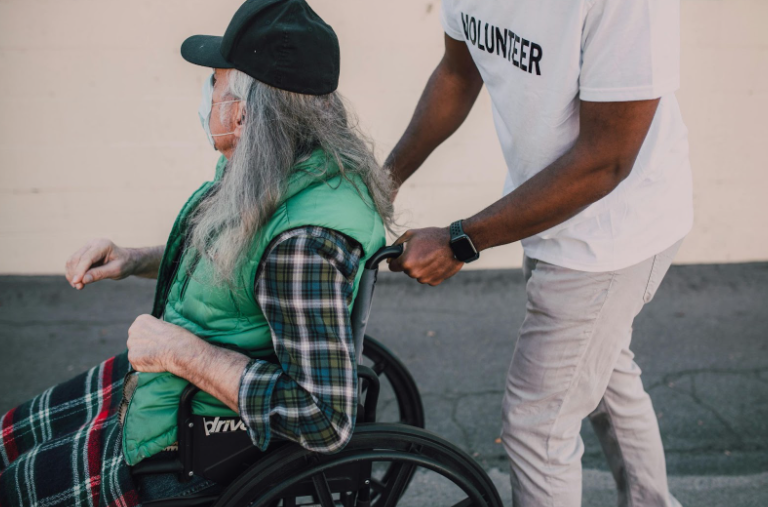Imagine a society in which all elderly individuals, irrespective of their cognitive or physical capabilities, flourish in their local community and lead lives filled with dignity and independence. Achieving this goal for many older adults with disabilities necessitates the ideal balance of care, assistance, and community resource access. Trained carers play an ever more important role as the population ages. With the help of Certificate III in Individual Support, carers can close the gap and improve the lives of seniors by addressing their particular issues.
The Growing Need for Senior Care Services
The growing older population in Australia is growing swiftly, with many seniors going through physical or cognitive disabilities that limit their potential to live independently. According to reviews, nearly 50% of seniors require some form of day-by-day help, underscoring the essential need for certified caregivers.
Community aid services bridge the distance between seniors’ boundaries and their desire for social, emotional, and physical well-being. With the right resources, seniors can stay active in their groups, enjoy better health, and preserve significant relationships.
Role of Certificate III in Individual Support
Certificate III in Individual Support equips caregivers with the understanding and capabilities to offer personalised care for seniors. This nationally diagnosed qualification makes a speciality of empowering caregivers to:
- Understand individual care plans and implement them efficiently.
- Help with daily living responsibilities, including bathing, grooming, and meal instruction.
- Promote emotional well-being through active listening and companionship.
- Support mobility and bodily rehabilitation desires.
- Facilitate entry to vital network outings and events.
- Graduates are well-prepared to meet the various demanding situations of supporting seniors with disabilities, creating a tangible difference in their lives.
Community Support for Seniors with Disabilities
- Government-backed Services
Government projects, which include the National Disability Insurance Scheme (NDIS), offer economic support and assets tailored to the desires of seniors with disabilities. These programs cover the following:
- Home modifications to improve accessibility.
- Mobility equipment like wheelchairs and walkers.
- Access to allied health and personal care providers.
Carers holding a Certificate III in Individual Support must ensure seniors get the most out of these tools.
- Programs for Home and Community Care (HACC)
Seniors can live independently in their houses for as long as possible due to services provided by the HACC program. Important services include:
- Domestic help for tasks around the house.
- Meal delivery services to help with nutrition.
- Transportation services for community activities or doctor’s appointments.
Seniors who have completed the Certificate III program may organise access to HACC services and recognise when they are needed.
- Recreational and Social Possibilities
For elders, social isolation is a serious issue with disabilities, often leading to depression and declining mental health. Community-based initiatives offer:
- Senior-friendly exercise classes, such as yoga or swimming, are available to meet their needs.
- Planning and executing activities like workshops, book clubs, and gardening groups.
- Volunteer opportunities for seniors to contribute to their communities.
By fostering social connection opportunities, caregivers can help seniors combat loneliness and enjoy a sense of belonging.
- Healthcare Resources
Access to healthcare is paramount for seniors with disabilities, mainly for dealing with chronic conditions or convalescing from surgeries. Community healthcare sources include:
- Mobile health offerings for in-domestic consultations.
- Respite care facilities for brief comfort to number one caregivers.
- Rehabilitation packages focused on physical or occupational therapy.
Caregivers with a Certificate III in Individual Support are skilled at collaborating with healthcare professionals and ensuring seamless integration of medical care into seniors’ daily lives.
- Mental Health Support
Seniors with disabilities are in better danger of experiencing anxiety, despair, and different intellectual health conditions. Support networks and counselling services are critical in addressing those challenges. Key assets encompass:
- Peer aid corporations for shared reviews and encouragement.
- Access to intellectual health experts for therapy and counselling.
- Programs that specialise in mindfulness and pressure reduction strategies.
- Trained caregivers are essential liaisons, identifying when seniors want intellectual health interventions and connecting them to suitable services.
Building Stronger Communities Through Collaboration
Care for seniors with disabilities extends beyond character efforts — it requires collaboration among governments, healthcare carriers, caregivers, and the community. Communities can ensure seniors feel valued and supported by growing inclusive environments and fostering intergenerational connections.
Certificate III in Individual Support enables caregivers to advocate for their clients as a bridge between seniors and the broader community sources available. This holistic approach not only only effectively improves seniors’ lives but also strengthens society’s pillars.
The Value of Continuous Education in the Provision of Care
The elderly care industry is constantly changing as new procedures, tools, and regulations influence how services are provided. To stay up to date with industry trends, professionals with a Certificate III in Individual Support are urged to pursue continuing education and training. Among the chances for ongoing education are:
- Specialised accreditations in palliative care or dementia care.
- Seminars on assistive technology use.
- Cultural competency classes to better serve a variety of demographics.
By staying updated, caregivers can deliver the best care possible and adjust to the evolving requirements of older adults with disabilities.
Final Thoughts: Strengthening Elders, Enhancing Communities
Supporting elderly people with impairments is an excellent and demanding adventure. Support networks and community resources are essential in enhancing the quality of life for these individuals, while trained caregivers are the cornerstone of their success.
By completing a Certificate III in Individual Support, caregivers gain the skills and knowledge to create meaningful change — not only in the lives of the seniors they serve but also within their communities. Together, we can build a future where every senior, regardless of their abilities, feels empowered, valued, and supported.

